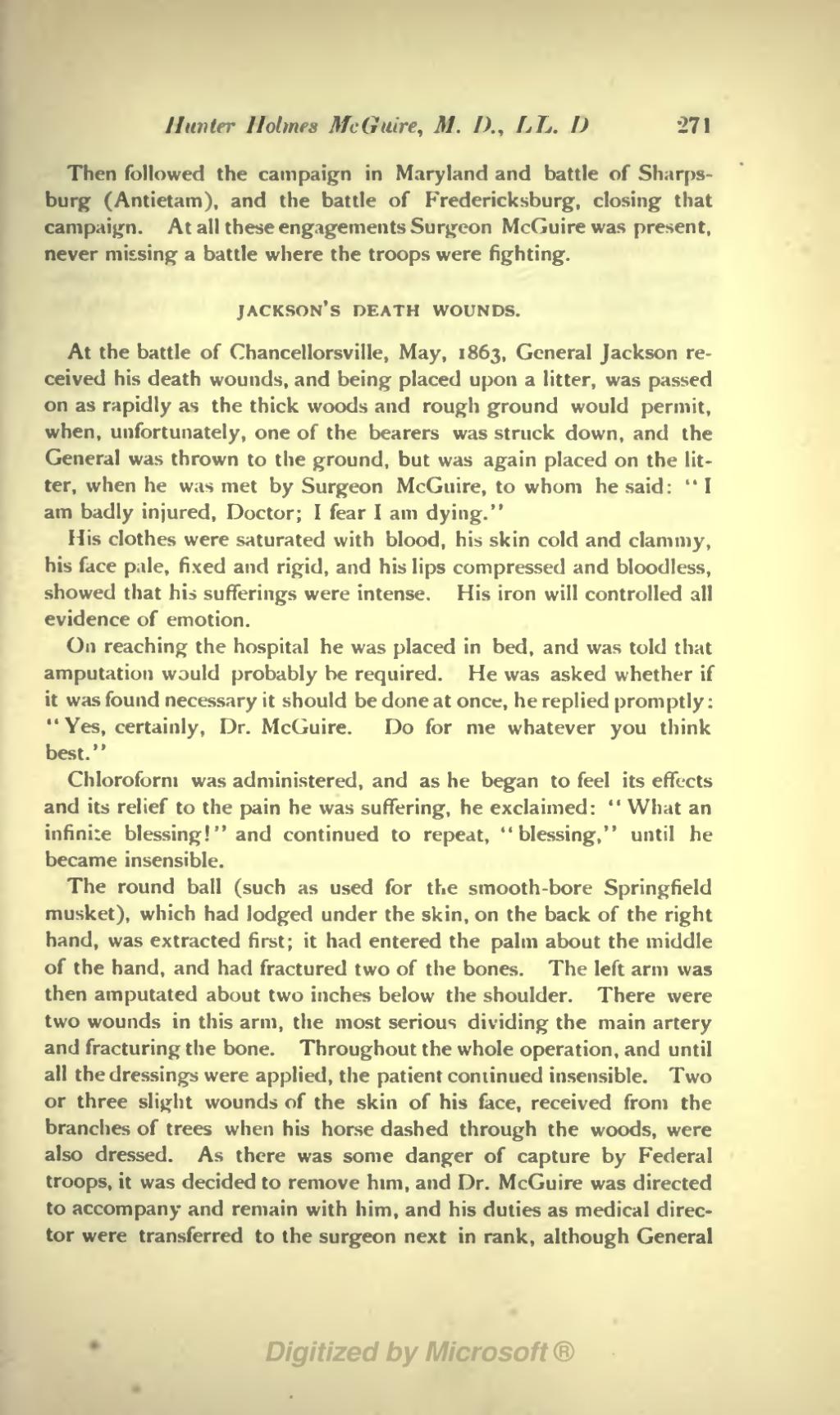/fitnttr llolnn* .JM/,/,,v. .)/. />.. l,L. I) '271
Then followed the campaign in Maryland and battle of Sharps burg (Antietam), and the battle of Fredericksburg, closing that campaign. At all these engagements Surgeon McGuirewas present, never missing a battle where the troops were fighting.
JACKSON'S DEATH WOUNDS.
At the battle of Chancellorsville, May, 1863, General Jackson re- ceived his death wounds, and being placed upon a litter, was passed on as rapidly as the thick woods and rough ground would permit, when, unfortunately, one of the bearers was struck down, and the General was thrown to the ground, but was again placed on the lit- ter, when he was met by Surgeon McGuire, to whom he said: " I am badly injured, Doctor; I fear I am dying."
His clothes were saturated with blood, his skin cold and clammy, his face pale, fixed and rigid, and his lips compressed and bloodless, showed that his sufferings were intense. His iron will controlled all evidence of emotion.
On reaching the hospital he was placed in bed, and was told that amputation would probably be required. He was asked whether if it was found necessary it should be done at once, he replied promptly : "Yes, certainly, Dr. McGuire. Do for me whatever you think best."
Chloroform was administered, and as he began to feel its effects and its relief to the pain he was suffering, he exclaimed: " What an infinite blessing!" and continued to repeat, "blessing," until he became insensible.
The round ball (such as used for the smooth-bore Springfield musket), which had lodged under the skin, on the back of the right hand, was extracted first; it had entered the palm about the middle of the hand, and had fractured two of the bones. The left arm was then amputated about two inches below the shoulder. There were two wounds in this arm, the most serious dividing the main artery and fracturing the bone. Throughout the whole operation, and until all the dressings were applied, the patient continued insensible. Two or three slight wounds of the skin of his face, received from the branches of trees when his horse dashed through the woods, were also dressed. As there was some danger of capture by Federal troops, it was decided to remove him, and Dr. McGuire was directed to accompany and remain with him, and his duties as medical direc- tor were transferred to the surgeon next in rank, although General
